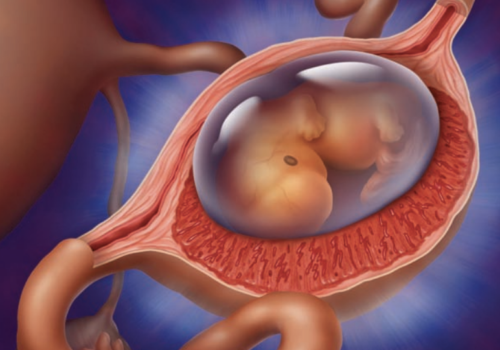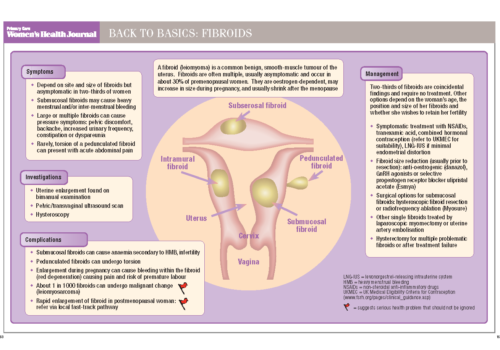Female genital mutilation (FGM) comprises all procedures involving partial or total removal of the external female genitalia or other injury to the female genital organs for nonmedical reasons. The practice has no known health benefits, is psychologically and physically harmful, and is a violation of human rights. About 70,000 women and girls living in the UK have had some form of FGM, and 20,000 young girls under the age of 15 years are thought to be at risk either in this country or abroad.
Ectopic pregnancy: The new NICE guidelines
Early detection and timely intervention have reduced maternal deaths from ectopic pregnancy, but women continue to die. New guidelines from the National Institute for Health and Clinical Excellence (NICE) aim to ensure that all health professionals are alert to the possibility of ectopic pregnancy and avoid missed opportunities for diagnosis.
Joints, hypermobility and hormones
Joint hypermobility is a common problem, particularly in women, and can cause significant morbidity to a minority of affected patients. In women, hormonal changes during menstruation, pregnancy and menopause can impact on symptoms of joint hypermobility, while manipulation of hormones can have both positive and negative effects for patients.
Editorial: Supporting women through menopause
All women, if they live long enough, will go through the menopause. For some women, especially if they have few symptoms, the menopause transition comes as a welcome relief from menstruation and the possibility of pregnancy. Others experience disabling menopausal symptoms, and may feel psychological distress from their loss of fertility. Supporting these women is one of the most rewarding parts of clinical practice, especially as there is now a much more balanced approach, at least among knowledgeable clinicians,1 to the risks and benefits of hormone replacement therapy (HRT).
Pinpointing the best treatments for UTIs
Urinary tract infections (UTIs) are very common, affecting about half of women at least once in their lifetime. Although UTIs can be painful and uncomfortable, they are usually limited in duration and treatable with antibiotics. The challenges are to manage the one in five women who experience recurrent UTIs, and to avoid complications in patients who do not respond to treatment.
Which HRT for which woman?
The gold-standard treatment for menopausal women experiencing symptoms of oestrogen deficiency is hormone replacement therapy (HRT). HRT prescribing should largely be initiated, and managed, in primary care. This article takes a step-wise approach to looking at the factors to take into account, and the questions to ask, when deciding which HRT to prescribe appropriately for which woman.
Back to Basics: Fibroids
Managing anogenital warts in primary care
The most common sexually transmitted infection in the UK, anogenital warts are caused by the human papilloma virus (HPV). They are usually painless, but women often find their presence unsightly and distressing. Choice of treatment depends on the type, number and distribution of the warts, and the patient’s preferences. Relapse is common, but women can be reassured that the vast majority of lesions are benign.
Ensure success with the contraceptive implant
The popularity of the contraceptive implant among younger women has contributed greatly to the recent increase in the use of long-acting reversible methods. Based on his 12 years of experience in counselling patients and fitting the implant, the author advises on how to avoid the pitfalls to ensure success with this method of contraception.
High pressure: Hypertensive disorders in pregnancy
For most women, pregnancy is a normal, life-affirming process, but there may be complications for some mothers and babies. Raised blood pressure can harm both babies and mothers-to-be, and is a leading cause of maternal death as well as fetal loss. These deaths are avoidable, so it is vital for GPs and practice nurses to recognise and know how to manage hypertension in pregnancy.
Choosing Novasure® for endometrial ablation
Heavy menstrual bleeding (HMB) prompts one in 20 women aged 30-49 years to visit their general practitioner. There are many treatment options for HMB, but endometrial ablation is recommended before hysterectomy when symptoms do not respond to medical treatment. This article discusses NovaSure, a method of endometrial ablation that may have advantages for some patients.
Safeguarding, consent and confidentiality
Safeguarding – protecting a person’s health, wellbeing and human rights to enable them to live free of harm, abuse and neglect – is fundamental to health and social care. But sometimes in clinical practice the situation and the appropriate response are not clear-cut, and careful consideration is needed before sharing concerns about a young person’s sexual activity and relationship.


























